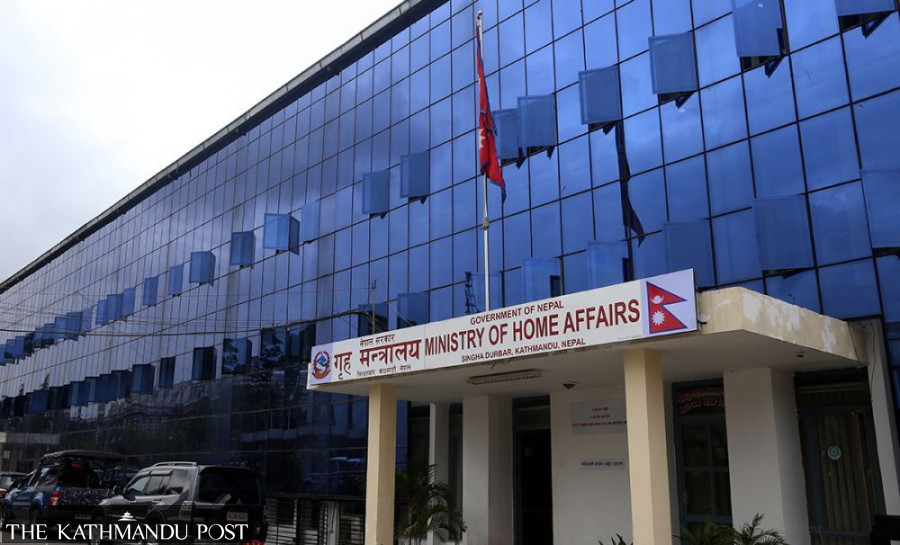National
Bill seeks to clip nongovernment organisations’ wings
Draft aimed at constraining constitutional rights and civil freedoms, says federation chair.
Post Report
The draft bill on Association and Organisation has drawn criticism, with the NGO Federation of Nepal, an umbrella body of non-governmental organisations, strongly opposing it.
After much research, the Ministry of Home Affairs drafted the bill that aims to consolidate the National Directives Act, 1961; the Association Registration Act, 1977; and the Social Welfare Act, 1992 into a single law regulating such organisations.
The ministry has released the bill, calling for public opinion and suggestions. As per the ministry, it will be finalised after incorporating the feedback.
The federation has expressed serious objection to the bill, saying, “It is motivated not by the objective of facilitating and empowering associations but rather of further restricting them, tightening control, and curtailing the role of citizen participation. In doing so, the draft also undermines the shared values of civil liberties, inclusivity, and transparency.”
If the federation leadership's claims are anything to go by, they had sent two representatives, as the government had asked, to contribute to the drafting process. However, they were never invited during the drafting process.
“There have been no consultations with the stakeholders including us, before finalising the draft,” said Arjun Bhattarai, chair of the federation. “The draft seeks to constrain democratic norms and values, constitutional rights and civil freedoms. This is unacceptable. The draft is more regressive than the one from the Pachayat regime.”
Stating that the federation agrees with the need for a consolidated law to promote and facilitate civil society associations and organisations, it has asked the government to withdraw the bill and draft a new one with broader consultations and participation. It says the government has ignored the past agreements while drafting the law.
Bhattarai said the proposed law makes organisation registration very complex and bureaucratic. Section 5 of the bill says the application must be submitted to the competent authority based on the organisation’s working area.
If an organisation aims to work in a single local unit, its working area must be only that local unit. Those aiming to work in more than one local unit within the same district should register at the district level.
Likewise, organisations that work with more than one local unit from different districts should be registered at the provincial level. If they work in more than one province, they need registration at the federal level.
If the working area of a registered organisation changes, it must also proceed for registration with the relevant authority. Any change takes effect only with the authority’s approval.
“The draft adds unnecessary administrative hassles by proposing provisions that require frequent visits to government agencies, thereby making it appear more regressive and burdensome,” reads the federation’s statement.
“The federation strongly urges the home ministry to make the proposed draft association-friendly, to respect fundamental rights and freedoms, and to create an enabling environment for associations and organisations.”
Bhattarai said it is worrying that the government is trying to discourage the organisations that want to contribute to their society. He says those in power tend to forget that local youth clubs, mothers’ clubs and community forestry user groups are also NGOs.
“The local governments should be allowed to register and supervise the community-based organisation, and there should be another entity to approve those who get funds from abroad. To maintain transparency, there should be a one-door policy in approval of the funds from abroad, and an online system should be developed where anyone can see which organisation got how much funding to work in which sector,” he said.
Bhattarai said they also object to the Ministry of Women, Children, and Senior Citizens-led directive committee, which will have the authority to formulate policies regarding the institution's rules, operation, and coordination and to manage the operation of non-government organisations. The ten-member committee doesn’t envision having representatives from the non-government organisations.




 14.24°C Kathmandu
14.24°C Kathmandu














